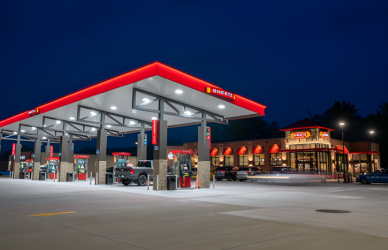In the rapidly evolving trucking industry, staying competitive requires more than just maintaining a fleet of vehicles. Trucking fleet managers need to make informed decisions based on data and leverage analytics to optimize the performance of their trucking fleet. Big data and analytics provide valuable insights that can drive efficiency, reduce costs, and improve overall fleet performance. In this blog post, we will explore how trucking fleet managers can harness the power of big data and analytics, the metrics they should track, and best practices for collecting the necessary data.
Leveraging Big Data and Analytics
To optimize the performance of a trucking fleet, fleet managers can leverage big data and analytics to gain actionable insights into various aspects of fleet operations. By collecting and analyzing large volumes of data, fleet managers can make data-driven decisions that can enhance efficiency and competitiveness.
Key Metrics for Fleet Performance Tracking
- Fuel Consumption – Tracking fuel consumption is crucial as it directly impacts the fleet’s operational costs. By monitoring fuel efficiency and identifying areas of improvement, fleet managers can optimize routes, reduce idle time, and adopt fuel-saving strategies.
- Vehicle Utilization – Understanding how effectively the fleet’s vehicles are being utilized is vital. Metrics such as average miles driven per day, vehicle downtime, and utilization rates can help fleet managers identify underutilized vehicles, adjust fleet size, and allocate resources more efficiently.
- Maintenance and Repairs – Keeping track of maintenance schedules, repair costs, and vehicle downtime is essential for fleet managers. Analyzing this data helps identify patterns and allows for proactive maintenance, minimizing breakdowns and costly repairs.
- Driver Performance – Monitoring driver behavior and performance metrics like speeding incidents, harsh braking, and idling time can help fleet managers identify high-risk driving habits. By providing targeted training and incentives, fleet managers can improve driver safety and fuel efficiency.
Best Practices for Data Collection
- Telematics Systems – Installing telematics devices in vehicles allows fleet managers to collect real-time data on location, speed, fuel consumption, and more. Telematics systems provide valuable insights into driver behavior and overall fleet performance.
- Integration with Fleet Management Software – Integrating data from telematics systems, fuel cards, maintenance records, and other relevant sources into a centralized fleet management software enhances data accuracy and simplifies analysis.
- Data Security and Privacy – Protecting sensitive fleet data is crucial. Implementing robust security measures, encrypted data transmission, and complying with data protection regulations ensure that fleet managers can leverage big data without compromising security or violating privacy rights.
In today’s competitive trucking industry, leveraging data and analytics is vital for optimizing fleet performance. By tracking and analyzing the available data, trucking fleet managers can drive their fleets towards greater success in a rapidly changing industry.











